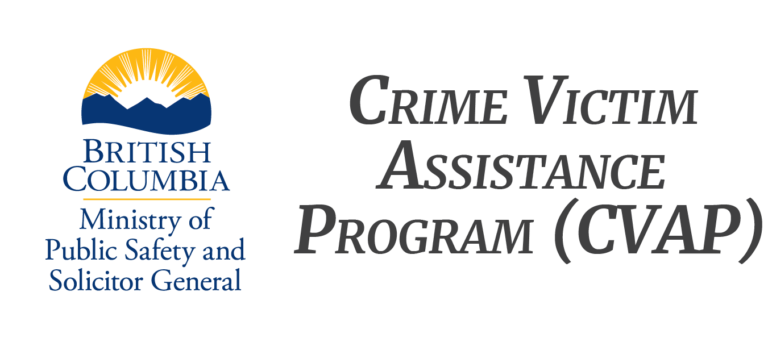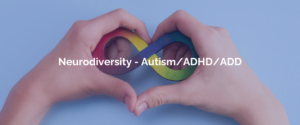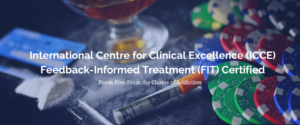Neurofeedback at MasterMind Centres
BCIA Board Certified in Neurofeedback, ISNR Professional Member
The MasterMind Concept
We believe in a holistic approach to mental and emotional well-being. Recognizing that human behaviour is influenced by a complex interplay of biological, psychological, and social factors, we embrace the biopsychosocial model in our approach to client care. We offer a range of innovative therapies, including counselling, neurofeedback, and mindfulness practices, to address the unique human needs of each individual and empower them to navigate life's challenges with greater resilience and well-being. Achieving good Mental Health outcomes is an ongoing challenge and that is why we continue to invest in our skills, build our knowledge, and incorporate technology where it makes sense to help you Master your Mind.

Maryam Mills, RCC-ACS, CCC, BCN | Clinic Director
What is Neurofeedback?
Neurofeedback Therapy is a non-invasive therapy that uses electroencephalography (EEG) technology to understand the dynamic patterns of your brain activity. Think of your brain as a complex network, made up of different areas that have specific jobs. Some areas handle movement, others process emotions, and still others are responsible for thinking and problem-solving. These different areas communicate with each other and the rest of your body through electrical signals, kind of like a vast network of telephone lines. These electrical signals, or brainwaves, vary in speed (frequency) and intensity (amplitude) depending on what you're doing. A healthy brain is flexible, able to shift smoothly between different brainwave patterns as needed - this is called neuroplasticity.
What neurofeedback does is essentially "eavesdrop" on these electrical signals. We use sensors placed on your head to read (non-invasive) your brainwaves, a process called electroencephalography (EEG). This technology allows us to see the frequency and amplitude of brain waves in different areas of your brain. We collect thousands of data points over a period of time in different conditions, creating a comprehensive picture of your brain's activity. This data is then compared to what's considered "normal" brainwave patterns for someone your age. This comparison, often visualized as a brain map (qEEG), helps us identify areas where the brain's activity might be dysregulated – meaning it's not functioning as efficiently or effectively as it could be. For example, some areas might be overactive, leading to anxiety, while others might be underactive, contributing to difficulty focusing.
This information, combined with the symptoms you describe during an assessment, helps us pinpoint potential areas for improvement. From there, we develop a personalized brain training program, using a technique called operant conditioning. During these exercises, you'll receive real-time feedback on your brainwave activity, often through visual or auditory signals. For instance, you might be playing a simple video game that's controlled by your brainwaves. When your brain activity shifts into a more desirable pattern, you might see the game move forward, or hear a pleasant tone. This feedback helps your brain learn to regulate itself more effectively, becoming more efficient, flexible, and resilient. Over time, these learned changes can become automatic, leading to lasting improvements in focus, mood, and overall cognitive function. Your brain learns how to cope with the many challenges of life, and to make automatic adjustments to avoid problematic symptoms from occurring.
Many conditions such as anxiety, sleep disorders, traumatic brain injury, post-traumatic stress disorder, memory loss, depression, mood dysregulation, obsessive compulsive disorder, autism spectrum disorders and more have been found to be highly treatable by Neurofeedback Therapy. In addition to treating common symptoms, brain training is also often used to help healthy minds to reach peak performance by improving focus, alertness, memory and mental acuity.
Want to learn more? Click HERE to get into the science behind Neurofeedback.
MasterMind Method for Neurofeedback
While the science behind Neurofeedback Therapy is powerful and complex, MasterMind Brain Optimization Centres makes it an easy experience for you. Neurofeedback is non-invasive, does not have side effects, and results can be long-lasting so there is little risk, and a lot of potential. MasterMind also offers certified Psychological Counselling services, so rather than seeing Neurofeedback vs. Counselling as an either/or decision, many of our clients benefit from both and Counselling services can be introduced at any time.
We have put in the work by getting Board Certified with BCIA, the highest industry certification available from the most widely accepted industry certification organization.
Here are the steps in the Neurofeedback Therapy journey:
Step 1: Symptom Assessment & Brain Map
We will interview you to find out your symptom history along with other pertinent medical information, treatment history, and goals for Neurofeedback Therapy. This is typically covered in a 1-hour session and can be done in-clinic or by secure video session.
We will then conduct an in-clinic session during which we will record the electrical signals coming from your brain in a process known technically as an Quantitative Electroencephalography (QEEG) or Brain Map (that is easier to say!). This data will allow us to compare to normalized databases of other QEEG's to identify potential areas of concern. This is typically conducted in a 1-hour session in-clinic.
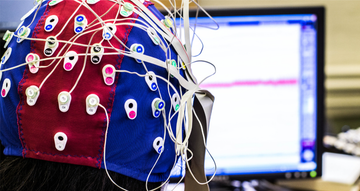
Step 2: Personalized Treatment Plan
We then match the symptomology from your assessment to potential areas of concern from your Brain Map to develop a Personalized Treatment Plan based on what you decide are the priorities for you. From this we will develop Treatment Protocols that specify what parts of the brain to treat in the most effective way.
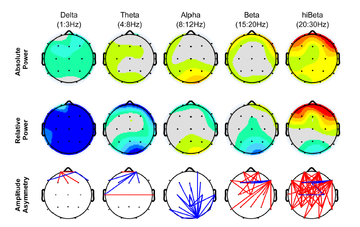
Step 3: Training Sessions
Using the customized Training Protocols, we will work with you in a series of 1-hour in-clinic sessions to "Train your Brain" using Operant Conditioning. Your brain will be prompted to perform specific tasks and will be rewarded by audio and visual cues and in so doing it will be "trained" to bring about an improved state. To see meaningful results, a minimum of 20 sessions should be expected to give your brain time to make lasting changes. Of course the number of sessions required will depend on the severity of the symptoms.
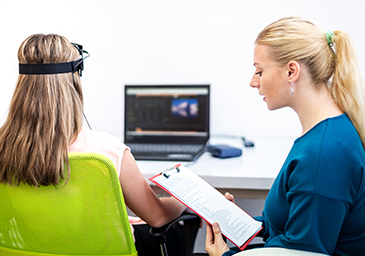
Step 4: Progress Reporting and Check-Ins
We will collect progress reporting from you regularly as we conduct training sessions to track your progress so that we can include how you feel as an input into the system and adjust training thresholds accordingly. During your training journey, we will periodically schedule specific call-out meetings with you (usually via the phone) with our Clinic Director to provide specific feedback on your progress and to hear any of your concerns. Based on these meetings, we will decide to stay-the-course or make adjustments as necessary.
Ready to learn more about how Neurofeedback can help you? Book a Free 15-minute consultation with one of our experienced therapists today.
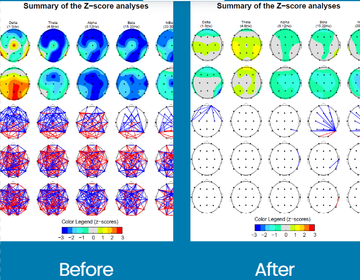
Choosing a Neurofeedback Provider: Your Brain's Health Matters
Your brain is the most complex and delicate organ in your body, the control center for everything you do, think, and feel. When considering neurofeedback therapy, choosing the right provider is crucial for achieving the best possible outcomes. Because neurofeedback involves training your brain, it's essential to select a skilled and experienced practitioner who understands the intricacies of brain function and can tailor a treatment plan to your specific needs. Just like you wouldn't trust a novice to perform heart surgery, you shouldn't entrust your brain's health to someone without the proper qualifications.
Here's what to look for when choosing a neurofeedback provider:
-
BCIA Certification: The Biofeedback Certification International Alliance (BCIA) is the gold standard in biofeedback and neurofeedback certification. A practitioner who is BCIA certified has demonstrated their knowledge and competency in the field, ensuring they adhere to rigorous ethical and professional standards. This certification signifies a commitment to quality and expertise, giving you confidence in their abilities. It means they have completed specific education and training requirements, and passed a comprehensive exam.
-
ISNR Membership: The International Society for Neuroregulation and Research (ISNR) is a professional organization dedicated to advancing the science and practice of neurofeedback. Membership in ISNR demonstrates a provider's commitment to staying current with the latest research, best practices, and advancements in the field. It also suggests they are part of a community of professionals dedicated to advancing the field of neurofeedback.
-
Experience and Specialization: Inquire about the provider's experience with neurofeedback therapy, specifically in treating the conditions you're seeking help for. Some practitioners may specialize in particular areas, such as ADHD, anxiety, or migraines. Choosing a provider with experience in your area of concern can be beneficial.
-
Comprehensive Assessment: A thorough assessment is essential for developing an effective neurofeedback treatment plan. The provider should conduct a detailed evaluation, including a review of your medical history, symptoms, and goals. A qEEG brain map is a valuable tool for identifying areas of dysregulation and tailoring the training protocol to your specific brainwave patterns.
-
Personalized Treatment Plans: Neurofeedback therapy should be individualized to your unique needs. The provider should develop a personalized treatment plan based on your assessment results and goals. Avoid providers who offer a "one-size-fits-all" approach.
-
Clear Communication and Informed Consent: The provider should clearly explain the neurofeedback process, including the benefits, risks, and expected outcomes. They should also obtain your informed consent before starting treatment.
-
Comfort and Trust: Choose a provider you feel comfortable with and trust. The therapeutic relationship is an important part of the healing process.
Investing in your brain health is an investment in your overall well-being. By taking the time to research and choose a qualified and experienced neurofeedback provider, you can maximize your chances of achieving lasting and meaningful results. Don't hesitate to ask potential providers about their credentials, experience, and approach to treatment. Your brain deserves the best care
What Conditions may be Improved by Neurofeedback
Neurofeedback Frequently Asked Questions (FAQs)
What is neurofeedback?
Neurofeedback is a non-invasive therapy that uses sensors placed on your scalp to measure your brainwaves. These brainwaves are then displayed on a computer screen or through sounds, allowing you to see or hear your brain activity in real-time. With the guidance of a trained therapist, you learn to regulate your brainwaves, improving their efficiency and flexibility.
How does neurofeedback work?
Think of your brain as a complex orchestra, with different areas responsible for different functions. Sometimes, the orchestra might be out of tune, with some instruments too loud and others too quiet. Neurofeedback works like a conductor, helping your brain learn to adjust the volume and timing of its various "instruments" so they can work together in harmony.
What is neurofeedback best for?
- Neurofeedback has shown promise in addressing a wide range of conditions, including:
- ADHD and attention difficulties
- Anxiety and stress
- Depression
- Insomnia
- Learning difficulties
- Headaches and migraines
- PTSD
- Chronic pain
Is neurofeedback safe?
Neurofeedback is a safe and non-invasive therapy. There are no known side effects, and it's generally well-tolerated by most people.
How long does neurofeedback take?
The number of sessions required for neurofeedback varies depending on the individual and the specific condition being addressed. Typically, a course of treatment consists of 20-40 sessions, with sessions lasting 30-60 minutes each.
What can I expect during a neurofeedback session?
During a neurofeedback session, you'll be comfortably seated in a chair with sensors placed on your scalp. These sensors will read your brainwaves and transmit them to a computer. You'll watch or listen to feedback signals that reflect your brainwave activity. With the guidance of your therapist, you'll learn to use this feedback to regulate your brainwaves and improve your brain function.
Is neurofeedback covered by insurance?
Neurofeedback is covered by some private insurance companies, and is covered by some government programs...for example Veteran's Affairs Canada covers for Military veterans and RCMP veterans (as well as active service - ask us about Direct Billing for these programs through Mediavie Blue Cross). It's important to check with your insurance provider to see if they have any benefits for neurofeedback therapy.
Does neurofeedback work for everyone?
Neurofeedback is a personalized therapy, and the success of treatment can vary depending on the individual and the specific condition being addressed. However, many people experience significant improvements in their symptoms after undergoing neurofeedback therapy.
What are the benefits of neurofeedback?
- Neurofeedback can offer a number of benefits, including:
- Improved focus and attention
- Reduced anxiety and stress
- Improved mood and sleep quality
- Increased self-regulation
- Enhanced cognitive function
How do I find a qualified neurofeedback provider?
It's important to choose a qualified and experienced neurofeedback provider. Look for a provider who is certified by the Biofeedback Certification International Alliance (BCIA) and a member of the International Society for Neuroregulation and Research (ISNR). You can also ask your doctor or therapist for referrals.


